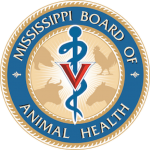MS Public Situation Report
HPAI 2023
03/20/2023 1700
Mississippi announced confirmation of Highly Pathogenic Avian Influenza (HPAI) in a backyard non-poultry flock in Monroe County. This follows detection in a backyard poultry flock in Copiah County and in a commercial poultry broiler farm in Leake County in February. Two HPAI detections were identified in November 2022 in a commercial broiler-breeder farm in Lawrence County and a goose in Lowndes County.
The State Veterinarian has quarantined the affected premises to prevent the spread of the disease. Birds from the flocks have not entered the food system. The MBAH is working closely with federal animal health officials on a joint incident response. The MBAH is actively working with the industry and backyard bird owners to increase monitoring of flocks statewide. The poultry industry and backyard bird owners were notified and put on high alert to increase biosecurity and surveillance for HPAI. More information can be found below and at https://www.hpai.ms.gov/.
Avian influenza does not present a food safety risk; poultry and eggs are safe to eat when handled and cooked properly. According to the U.S. Centers for Disease Control and Prevention (CDC), the public health risk associated with these avian influenza detections in birds remains low. As a reminder, the proper handling and cooking of all poultry and eggs to an internal temperature of 165 ˚F is recommended as a general food safety precaution.
Lawrence
Lowndes
Leake
Copiah
Monroe” _builder_version=”4.20.2″ _module_preset=”default” global_colors_info=”{}”][/dvmd_table_maker_item][dvmd_table_maker_item col_label=”Number of Positive Premises” col_content=”Number of Positive Premises
1
1
1
1
1″ _builder_version=”4.20.2″ _module_preset=”default” global_colors_info=”{}”][/dvmd_table_maker_item][dvmd_table_maker_item col_label=”Type of Premises” col_content=”Type of Premises
Commercial Broiler-Breeder
Backyard Non-poultry (goose)
Commercial Broiler
Backyard poultry
Backyard Non-poultry” _builder_version=”4.20.2″ _module_preset=”default” global_colors_info=”{}”][/dvmd_table_maker_item][/dvmd_table_maker]
Links to key information:
Avian Permit Request Form – https://agnet.mdac.ms.gov/MBAHPermits
Dead Bird Reporting Form – https://agnet.mdac.ms.gov/MBAHReportableDiseases/publicreportingform
Backyard/Exhibition Bird Information – https://www.hpai.ms.gov/information/backyard/
More Information – https://www.hpai.ms.gov/
What Flock Owners Should Do
Increase Biosecurity: It is extremely important for poultry owners to increase biosecurity measures to protect their birds from HPAI. People that have poultry around bodies of water such as ponds, creeks, rivers should be aware. The USDA Defend the Flock website has helpful resources for keeping poultry healthy in any operation.
Best biosecurity practices include:
- Ensuring all entry requirements including testing for Avian Influenza are met prior to movement of birds.
- Use dedicated footwear and wash your hands when tending your flock.
- Do not let poultry drink untreated water from lakes and ponds.
- Do not let waterfowl become residents close to small domestic flocks.
- Do not come into direct contact with your flocks if you have seen birds in another country or been involved with hunting, or in contact with any other birds (zoos, auctions, flea markets, live bird markets).
Monitor Flocks: Monitor your flock for signs and symptoms of avian influenza including monitoring production parameters (feed and water consumption, egg production) and increased morbidity and mortality. Any changes in production parameters that could indicate HPAI should be reported.
Signs and symptoms of Avian Influenza include:
- Drop in egg production, soft eggshells
- Discolored combs and feet
- Birds stop eating or drinking
- Diarrhea
- Sudden mortality
Report Disease: Promptly report any observation of domestic or wild birds with the signs as described above to the MBAH via the online form at https://agnet.mdac.ms.gov/MBAHReportableDiseases/publicreportingform or by calling 888-646-8731.

